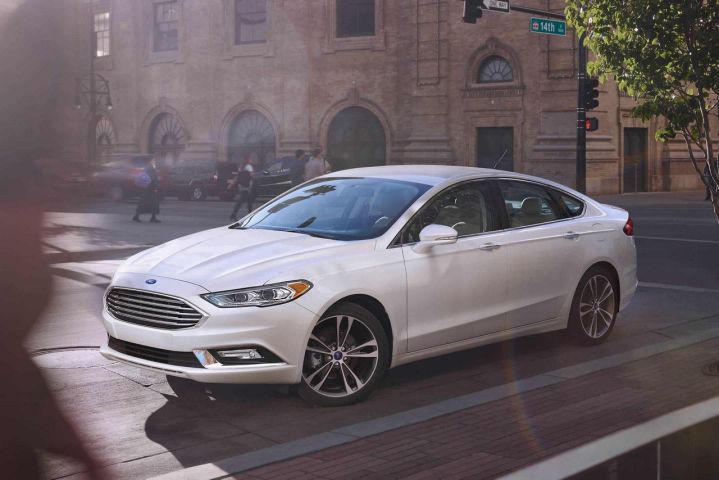
The thought of your car’s steering wheel becoming detached while you’re negotiating a series of bends at speed is a terrifying one, and that’s exactly why Ford has just announced a recall notice for more than 1.3 million of its vehicles.
The automaker issued the notice on Wednesday for its Ford Fusion and Lincoln MKZ cars, specifically:
- 2014-17 Ford Fusion vehicles built at Flat Rock Assembly Plant, August 6, 2013, to February 29, 2016
- 2014-18 Ford Fusion vehicles built at Hermosillo Assembly Plant, July 25, 2013, to March 5, 2018
- 2014-18 Lincoln MKZ vehicles built at Hermosillo Assembly Plant, July 25, 2013, to March 5, 2018
Around 1,378,000 vehicles in North America are affected by the recall, with just under 1,302,000 of them currently on U.S. roads, 62,479 in Canada, and 14,172 in Mexico. The reference number for the recall is 18S08.
Ford said it’s calling the cars in because of “potentially loose steering wheel bolts that could result in a steering wheel detaching from the steering column.”
It added that in affected vehicles, the bolt “may not maintain torque, allowing the bolt to loosen over time, and if not serviced, a steering wheel could potentially detach and lead to a loss of steering control and increased risk of a crash.”
Dealers will fix the issue by using a longer steering wheel bolt in place of the current one, with its more robust thread engagement and larger nylon patch serving to create a safe setup.
The American car giant said it’s currently aware of two accidents and one injury that may be related to the fault. However, a recent review of the National Highway Traffic Safety Administration’s defect complaint database by USA Today showed up more than 40 incident reports in which drivers alleged that the steering wheel on their Ford Fusion had come loose.
One driver reported in September 2017 that the steering wheel “fell off in my lap” when they went to turn into a gas station, while another reported just 10 days ago that when they climbed into their car, their knee bumped the steering wheel, causing it to detach.
And there’s more …
In the same announcement, the Dearborn, Michigan-based company also recalled 6,000 manual transmission cars for a clutch plate issue that could cause a fire.
Affected vehicles include:
- 2013-16 Ford Focus vehicles with 1.0-liter Fox GTDI engines and B6 manual transmissions built at Michigan Assembly Plant, July 21, 2014, to June 30, 2016
- 2013-15 Ford Fusion vehicles with 1.6-liter Sigma GTDI engines and B6 manual transmissions built at Hermosillo Assembly Plant, March 9, 2012, to June 28, 2014
Ford’s action is the latest in a string of recalls to hit the automotive industry. Last month, both Toyota and Hyundai made similar announcements for various issues affecting trucks and SUVs, while BMW recalled nearly 12,000 cars after it installed the wrong software.
In addition, Tesla recently called in thousands of vehicles over a fault with their back seats, while Volkswagen put out a notice for more than half a million vehicles in early 2017 over faults that could have caused fires or airbag malfunctions. Speaking of airbags, Takata’s own faulty units led to the biggest recall in history that affected more than 50 million vehicles from 12 automakers. The company filed for bankruptcy in 2017.
Editors' Recommendations
- Ford recalls nearly 1.9 million Explorer SUVs over safety issue
- Ford recalls more than half a million SUVs over fire risk
- Nissan recalls 1.2M cars to ensure owners can’t turn off the rear-view camera


